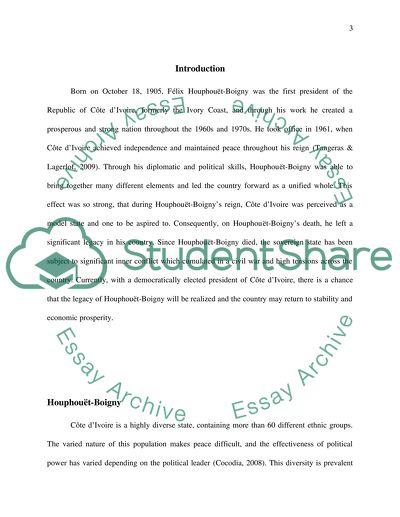Cite this document
(“The Legacy of Felix Houphouet-Boigny - Cote d'Ivoire Essay”, n.d.)
Retrieved from https://studentshare.org/history/1448923-the-legacy-of-felix-boigny-cote-d-ivoire
Retrieved from https://studentshare.org/history/1448923-the-legacy-of-felix-boigny-cote-d-ivoire
(The Legacy of Felix Houphouet-Boigny - Cote d'Ivoire Essay)
https://studentshare.org/history/1448923-the-legacy-of-felix-boigny-cote-d-ivoire.
https://studentshare.org/history/1448923-the-legacy-of-felix-boigny-cote-d-ivoire.
“The Legacy of Felix Houphouet-Boigny - Cote d'Ivoire Essay”, n.d. https://studentshare.org/history/1448923-the-legacy-of-felix-boigny-cote-d-ivoire.


